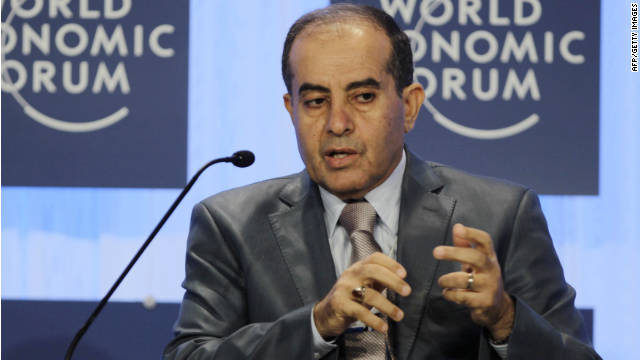
- Libyans voted July 7 for a General National Congress, a 200-seat assembly
- The National Forces Alliance (NFA) wins 39 seats, the most of any group
- Results are not final until after a 14-day appeals period
- Libya is unique among nations that have held elections after Arab Spring uprisings
Tripoli, Libya (CNN) -- A political coalition widely regarded as the liberal option dominated Libya's historic parliamentary elections, results showed Tuesday.
The National Forces Alliance (NFA) won 39 seats, the most of any group. The coalition was trailed by the Justice and Construction party, a Muslim Brotherhood affiliate, which won 17 seats nationwide.
The results make Libya unique among countries that have held elections after Arab Spring uprisings. Voters in the North African nation chose a more liberal coalition to lead, while voters in Egypt and Tunisia both opted for Islamist parties.
The balance of power in the 200-seat General National Congress, however, remains up in the air.
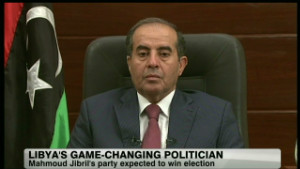 Libya's game changer: Mahmoud Jibril
Libya's game changer: Mahmoud Jibril 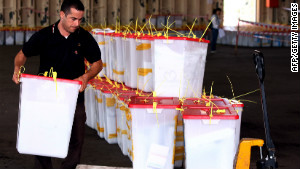 What's next for Libya after elections?
What's next for Libya after elections? 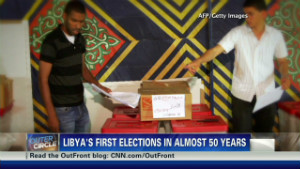 First election since Gadhafi's ouster
First election since Gadhafi's ouster  Libya's road to democracy
Libya's road to democracy 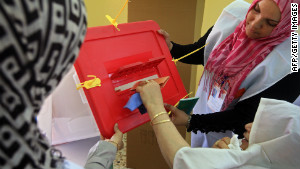 Libyans vote in landmark election
Libyans vote in landmark election Eighty seats are allocated to political entities, while 120 are reserved for individual candidates, which means the NFA's electoral victory does not automatically grant it a majority.
The results, though complete, are not yet final. Rivals have a 14-day period to file appeals, after which the results will be certified.
Libyans voted July 7 for the assembly that will appoint a transitional government and oversee the drafting of a constitution. About 3,500 candidates ran for the new parliament.
The assembly, which will take over from the National Transitional Council, will have 30 days from its first meeting to appoint a prime minister.
The NFA is led by Mahmoud Jibril, who was prime minister in the interim government that declared Libya a free nation after the 2011 revolt that toppled longtime ruler Moammar Gadhafi in October. The mercurial Gadhafi dismantled many of the civic institutions common to democratic states during his 42 years in power, leaving Libya struggling to emerge from his shadow.
While Gadhafi's death ended much of the violence, unrest continues in parts of the country, particularly the south and the west, and the government has not been able to completely contain the militias that helped overthrow the former leader.
In an interview with CNN's Christiane Amanpour last week, Jibril said that it is vital for Islamists, liberals and secularists to "sit around one table" and form a new government.
"I think the biggest challenge right now is to convince our potential partners, especially the Islamist forces, that now it's time that we sit around one table and talk about one destiny that is in the interest of the Libyan people," he said from Tripoli. "It has nothing to do with who prevails in those elections or those who do not prevail."
Jibril said the absence of a civic structure in Libya means people of all political ideologies can be part of a new government.
"It's an opportunity that all parties, all political forces can have a new start where all of them can participate and take part in the reestablishment of the state," he said.
The NFA is a coalition of 58 political parties that campaigned as a "more liberal, progressive option" and focused heavily on economic issues, according to the Project on Middle East Democracy, a U.S.-based group.


